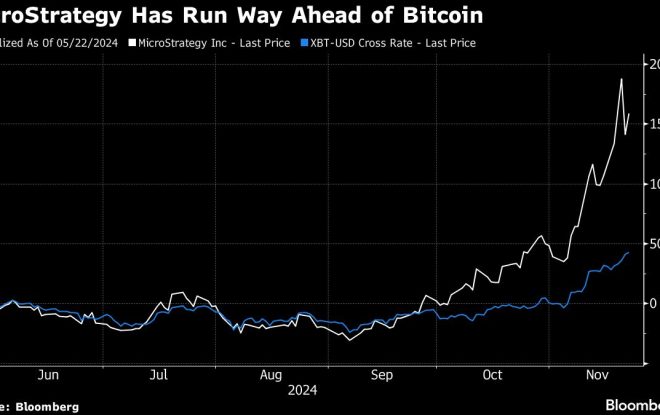If I Could Only Buy 1 Dividend Stock in September, This Would Be My Top Choice
I buy a lot of dividend stocks. I focus on dividends because they have proven to be powerful wealth creators. Over the past 50 years, dividend payers have outperformed the average stock in the S&P 500 — their 9.2% average annual total return beats the 7.7% produced by an equal-weighted S&P 500 index. Dividend growers and initiators have done most of the heavy lifting, posting a 10.2% annual return compared to 6.7% for companies with no change in their dividend policy.
Given the power of dividends, I tend to invest in several dividend stocks each month. However, if I had to choose just one to buy this September, it would be Brookfield Infrastructure (NYSE: BIPC)(NYSE: BIP). Here’s why.
A history of dividend growth and wealth creation
Brookfield Infrastructure formed about 15 years ago as a spinoff from the company now known as Brookfield. It has been a phenomenal wealth creator over that period. The global infrastructure giant has increased its dividend every single year, growing its payout at a 9% compound annual rate. Not only has the stock outperformed the S&P 500 over that period, with a 14.9% average annual total return compared to the index’s average return of 10.8%, but its dividend yields roughly three times as much today, coming in just short of 4% at Friday’s closing price.
Several factors have helped drive the company’s ability to produce such powerful dividend growth and returns. A major one is the overall stability of its portfolio. Brookfield Infrastructure’s businesses generate stable cash flow backed by long-term contracts and government-regulated rate structures. The company says 85% of its funds from operations (FFO) are either protected from or indexed to inflation. That provides it with a stable stream of cash flow that tends to rise by 3% to 4% annually.
Brookfield Infrastructure also benefits from having a strong financial profile. It has a reasonable dividend payout ratio (60% to 70% of its stable cash flows), a strong investment-grade balance sheet, and lots of liquidity that it routinely replenishes by recycling capital. The company uses its financial flexibility to invest in expansion projects and make acquisitions. Those catalysts and other organic drivers have enabled Brookfield Infrastructure to grow its FFO per share at a 15% compound annual rate since its formation.
Multiple growth catalysts
The company expects to continue growing briskly in the future. It has positioned its portfolio to capitalize on three major investment megatrends: digitalization, decarbonization, and deglobalization. Each one has a long growth runway ahead.
Brookfield Infrastructure has built a large data infrastructure platform to capitalize on the digitalization megatrend. It has acquired several data center development platforms, cell tower operators, and fiber-optic networks. The company has also partnered with Intel to build two new semiconductor fabrication plants in the U.S.
The company has also acquired several companies in the transportation, energy midstream, and utility sectors to capitalize on the other two major megatrends. It tends to acquire expandable platforms that it can grow by investing in capital projects and making bolt-on acquisitions. It currently has a record $7.6 billion capital backlog that it expects to complete over the next two to three years. Meanwhile, it expects merger and acquisition activity to pick up in the second half of this year, adding a potential growth accelerant for 2025 and beyond.
Brookfield Infrastructure estimates that its platforms can organically grow its FFO per share by 6% to 9% per year through a combination of inflation-driven rate growth, volume growth as the global economy expands, and development projects. Meanwhile, it sees accretive acquisitions funded by recycling capital boosting its FFO growth rate into the double digits. This forecast easily supports the company’s plan to increase its dividend (which already yields 4%) by 5% to 9% per year.
Powerful total return potential
Brookfield Infrastructure has an exceptional record of growing its dividend and shareholder value. That should continue in the future. It expects to increase its dividend payout by 5% to 9% annually while growing its cash flow per share at a more than double-digit annual rate. That should give it the fuel to produce average annual total returns in the mid-teens. That robust total return potential from such a low-risk company is why I would pick Brookfield Infrastructure above all others if I could only buy one dividend stock this September.
Should you invest $1,000 in Brookfield Infrastructure Corporation right now?
Before you buy stock in Brookfield Infrastructure Corporation, consider this:
The Motley Fool Stock Advisor analyst team just identified what they believe are the 10 best stocks for investors to buy now… and Brookfield Infrastructure Corporation wasn’t one of them. The 10 stocks that made the cut could produce monster returns in the coming years.
Consider when Nvidia made this list on April 15, 2005… if you invested $1,000 at the time of our recommendation, you’d have $731,449!*
Stock Advisor provides investors with an easy-to-follow blueprint for success, including guidance on building a portfolio, regular updates from analysts, and two new stock picks each month. The Stock Advisor service has more than quadrupled the return of S&P 500 since 2002*.
*Stock Advisor returns as of August 26, 2024
Matt DiLallo has positions in Brookfield Infrastructure Corporation, Brookfield Infrastructure Partners, and Intel and has the following options: long January 2025 $30 calls on Intel, short January 2025 $30 puts on Intel, short November 2024 $45 calls on Intel, and short October 2024 $45 calls on Intel. The Motley Fool recommends Brookfield Infrastructure Partners and Intel and recommends the following options: short November 2024 $24 calls on Intel. The Motley Fool has a disclosure policy.
If I Could Only Buy 1 Dividend Stock in September, This Would Be My Top Choice was originally published by The Motley Fool





Leave a Reply